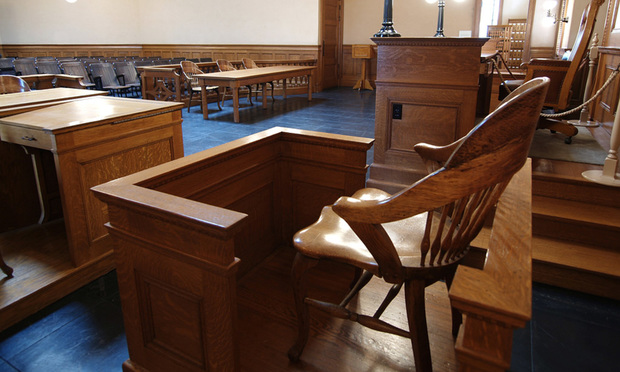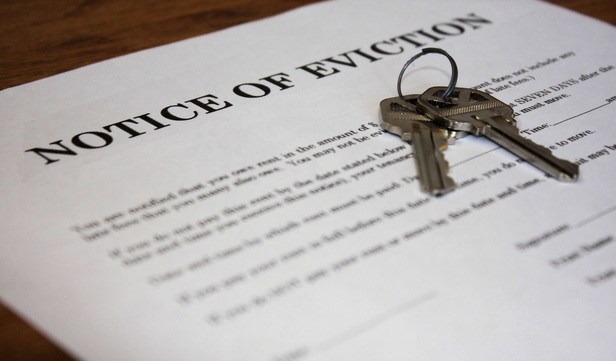Daniel A Cohen

May 05, 2020 | New York Law Journal
Overlooked by Executive Order No. 202.8 and AO/78/20: the Commercial Tenant's Need for 'Yellowstone' ReliefThe availability of 'Yellowstone' relief is now more important than ever to allow commercial tenants to withhold rent and assert these defenses without risking loss of their valuable leasehold.
By Timothy Macht, Daniel A. Cohen and Jacob Gardener
11 minute read

October 25, 2019 | New York Law Journal
A Philosophy of Cross-ExaminationNo one cross-examines a witness using syllogisms per se. Rather, the effective trial advocate, through his or her questions, develops testimony and signals inferences that the jury will grasp, recall, and care about, and this presentation requires an exercise of judgment as to which facts will drive the most helpful inferences (and will not drive any harmful inferences) and, tactically, how best to signal the desired inferences effectively to the factfinder (without backfiring).
By Milton L. Williams, Brian D. Mogck and Daniel A. Cohen
15 minute read

January 08, 2019 | New York Law Journal
Don't Sue the Messenger—Can Emailing Someone Else's Misstatements Trigger Primary Liability for Securities Fraud?Imagine that a boss prepares a materially false statement and directs her employee (who knows the statement is false) to email it to investors. Is the employee liable as a “primary violator” under the securities laws, or does her conduct constitute at most secondary liability, i.e., aiding and abetting securities fraud? The U.S. Supreme Court held oral argument on Dec. 3, 2018 in Lorenzo v. SEC to answer that question and resolve an apparent Circuit split.
By Amanda Senske and Daniel A. Cohen
8 minute read

November 08, 2017 | New York Law Journal
The Dos and Don'ts of 'Yellowstone' Injunctions: A Brief SurveyIn this Outside Counsel column, Daniel A. Cohen and Fielding Huseth survey decisions across a variety of asserted breaches, to aid practitioners in determining when a court will issue a 'Yellowstone' injunction.
By Daniel A. Cohen and Fielding Huseth
28 minute read

June 14, 2017 | New York Law Journal
'Upjohn' Across the Pond: A Muddy ViewDaniel A. Cohen and Adam P. Cohen write that the U.S. Supreme Court held that attorney-client privilege covers communications between all employees and the corporation's attorneys. English courts, however, have rejected this central tenet of 'Upjohn'. In both this and other respects, English law has taken a restrictive approach to protecting "internal investigation" documents from disclosure, as a pair of recent decisions of the High Court illustrate.
By Daniel A. Cohen and Adam P. Cohen
27 minute read

June 29, 2016 | New York Law Journal
New York Court of Appeals Clarifies Common Interest DoctrineDaniel A. Cohen of Walden Macht & Haran discusses the recent 'Ambac' decision, in which the Court of Appeals held that the existence of a joint legal strategy is a necessary, but not sufficient, condition for applying the common interest doctrine and that the existence of actual or anticipated litigation is additionally required in order for the doctrine to apply.
By Daniel A. Cohen
28 minute read

March 16, 2016 | New York Law Journal
Deposition of Corporate Witnesses in Commercial Division CasesDaniel A. Cohen discusses Rule 11-f of the Commercial Division, which provides a far more efficient and streamlined method for obtaining relevant testimony and information by requiring a responding entity to produce for deposition representatives who are prepared to testify about information known or reasonably available to the entity concerning topics previously designated by the party conducting the deposition.
By Daniel A. Cohen
10 minute read

November 01, 2007 | New York Law Journal
Liberalizing Use of Interrogatories in New York ActionsDaniel A. Cohen, a partner at Kornstein Veisz Wexler & Pollard, writes that CPLR 3130(1), which governs the use of interrogatories in New York civil actions, imposes two unnecessary restrictions. First, except in matrimonial actions, a party may not serve both interrogatories and a demand for bill of particulars on another party. Second, in negligence actions, a party may not both serve interrogatories on and depose another party without leave of court.
By Daniel A. Cohen
9 minute read

April 21, 2011 | New York Law Journal
Stipulations of Dismissal With Prejudice and Res JudicataDaniel A. Cohen, a partner at Kornstein Veisz Wexler & Pollard, and David T. McTaggart, an associate at the firm, write that the stipulation, of course, will bar a plaintiff from re-asserting the dismissed claims in a later action, but that is not all. It also may preclude the plaintiff from seeking new and different relief; from presenting new evidence, new legal theories or new causes of action; and even from continuing with claims that are being asserted in a different pending action.
By Daniel A. Cohen and David T. McTaggart
10 minute read

July 05, 2007 | New York Law Journal
Preparing for a Rule 30(b) DepositionDaniel A. Cohen, a partner at Kornstein Veisz Wexler & Pollard, writes that recent decisions highlight the perils of failing to prepare corporate witnesses adequately for Rule 30(b)(6) depositions. In some cases, the courts have awarded deposition fees as sanctions, or deemed certain facts admitted in favor of the deposing party. Even if the witness' lack of preparation does not expose the corporation to sanctions, the resultant testimony can lock the corporation into an unfavorable position at trial.
By Daniel A. Cohen
10 minute read
Trending Stories
- 1'Translate Across Disciplines': Paul Hastings’ New Tech Transactions Leader
- 2Milbank’s Revenue and Profits Surge Following Demand Increases Across the Board
- 3Fourth Quarter Growth in Demand and Worked Rates Coincided with Countercyclical Dip, New Report Indicates
- 4Public Notices/Calendars
- 5Monday Newspaper



